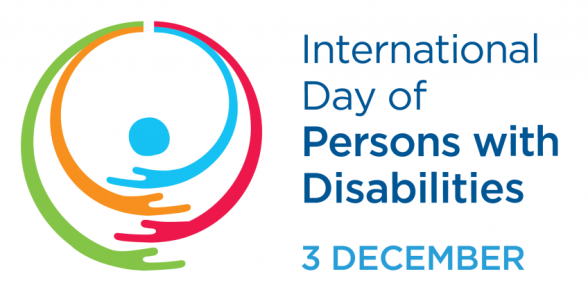 The World Health Organisation states "Dementia is one of the major causes of disability and dependency among older people worldwide" ( 2018).
The World Health Organisation states "Dementia is one of the major causes of disability and dependency among older people worldwide" ( 2018).
It also now defines dementia is a condition causing acquired cognitive disabilities.
It is therefore important as an organisation, DAI acknowledges and celebrates this day, as our members, when first diagnosed (even if not visible in the earlier stages of dementia) are living with acquired cognitive disabilities. However, as dementia progresses, our disabilities are likely to become more obvious, athough this seems to be the lens through which dementia is still only being viewed by health care professionals (in spite of initiatives to diagnose earlier) and many in the community (i.e. late stage).
Seeing dementia through the lens of disability helps us to claim our rights, under the Convention on the Rights of Persons with Disabilities (CRPD).
If you go to the United Nations website, you can read more about the theme of their activiteis today. What is very relevant to people with dementia is they are focusing in the morning on Sustainable Development Goals, and in the afternoon on Accessible Cities for All: Smart and Inclusive Urban Planning.
This is relevant, in light of the global campaigns to make our communities 'dementia friendly', as what we want has little to do with being friendly, and everything to do with inclusion, and therefore access, including access to adequate health care, and disability support including rehabilitation (cognitive and physical).
On the second half of the page about today on the UN, it says:
"In the morning, the commemoration of the International Day of Persons with Disabilities will feature the launch of the first UN Flagship Report on Disability and Development on the “Realization of the Sustainable Development Goals by, for and with persons with disabilities”. The publication will be launched by Mr. Elliott Harris, Assistant Secretary-General, for Economic Development and Chief Economist (UN DESA).
The opening ceremony will review the progress achieved, explore ways to further empower persons with disabilities and provide an overview of the international framework of the implementation of the 2030 Agenda for SDGs, in line with the Convention on the Rights of Persons with Disabilities (CRPD). The event will gather Member States, UN entities, civil society organizations, academic institutes and persons with disabilities.
In the afternoon, the commemoration will focus on “Accessible Cities for All: Smart and Inclusive Urban Planning” as key elements to reduce inequalities and empower people to live in accessible, usable and friendly healthy environments. The event will explore SDG11 of the 2030 Agenda for sustainable development by providing space for Mayors, City Leaders to exchange innovative solutions on how to implement the SDGs and to exchange good practices about inclusive urban planning to promote the participation and well-being of their citizens of all ages and abilities.
Afterwards, the event will discuss smart inclusive environment and how to apply information and communication technologies to provide better infrastructure, quality services in a safe accessible environment."
People with dementia have definitely become empowered, and are working together locally, nationally and globally to ensure dementia is ot only listed on websites as a condition casuing disabikites, it si a condition where we wil, at the time of diagnosis, be provided with adequate disability assessment and support to maintain independence for as long as possible, not just assessment of our Actvities of Daily Living (ADL's), and which will also include rehabilitation.
